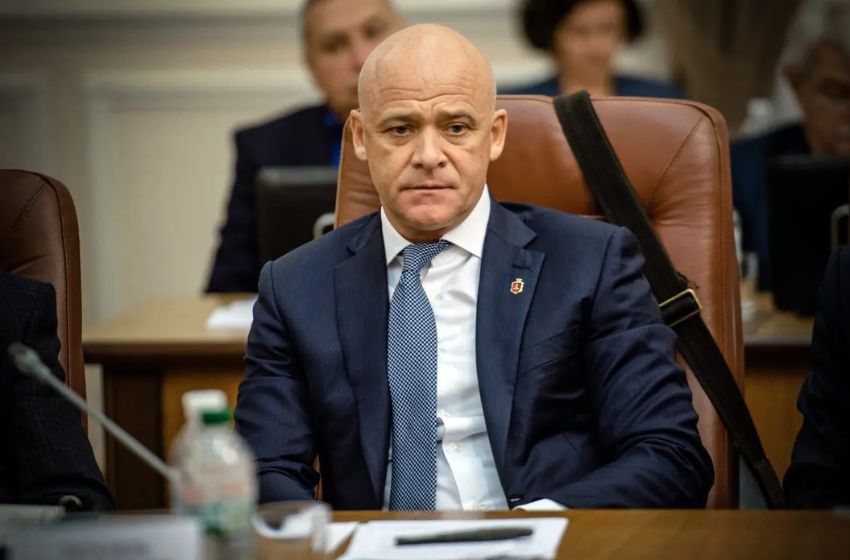Land reform is a strategically important step for the economic development of Ukraine, the main tasks of which are to regulate the land market, prevent corruption schemes in land relations, establish clear and fair relations in the field of land management, and impetus to economic growth. According to the experts of the European Business Association (hereinafter - the Association), the lifting of the moratorium and introducing the land market will solve a range of problems that have accumulated in the agricultural sector over the past 20 years. Experts of the Association have repeatedly expressed their concern that the existence of the shadow market hinders the effective accounting of land, as well as causes a low level of budget revenues and land degradation.
This is the historic moment when the market of agricultural lands was opened in Ukraine! After all, the moratorium on the sale of these lands in Ukraine has been extended as many as 10 times. So, over the 28 years of land reform, a lot of disparate information has been accumulated on this topic. The moratorium was applied to agricultural land plots of state and communal ownership, as well as land plots owned by citizens and legal entities for commercial agricultural production, land plots allocated in kind (on the ground) to owners of land shares (units) for personal farming, as well as land shares (units). Meanwhile, due to the long-term moratorium in Ukraine, a shadow market for the circulation of agricultural land has been formed through mechanisms not prohibited by law such as long-term lease, the establishment of long-term emphyteusis, etc.
What are our goals today?
In the course of the current land reform, the Verkhovna Rada of Ukraine adopted the Law of Ukraine “On Amendments to Certain Legislative Acts of Ukraine Concerning the Conditions of Circulation of Agricultural Lands†of March 31, 2020, which entered into force on July 1, 2021. What exactly do you need to know about the land market and how to use your right to purchase agricultural land? This question was discussed on July 20, 2021, during the Joint Meeting of the EBA Odesa Legal Committee and the Agrarian Working Group together with invited guests and experts of EBA member companies.
The event was opened by Artur Nitsevych, Chairman of the EBA Odesa Legal Committee, partner of the International Legal Service "Interlegal", moderator, who mentioned:
"What are our goals today? First, I hope that we will understand what we should prepare for, what markers to track and what practical advice we will take with us, and it will become a little clearer what will happen to the land market in the near future. Secondly, there is a lot of information on the Internet and in the media now, and it is quite contradictory, there is a lot of manipulation, so we must debunk these myths with you today.â€

Chairman of the EBA Odesa Legal Committee, partner of the International Legal Service "Interlegal"
Viktor Syzonenko, lawyer, head of the Southern Ukrainian branch of “Arzingerâ€, spoke about the path of land reform, the terms for circulation of agricultural land, preferential rights, and the buyer verification. According to Mr. Syzonenko, grain exports are breaking all records in the world's granary, so clear land regulation is very important for our economy. To date, the number of agreements on the sale of agricultural land has reached 1,100. Moreover, we have a demand for such agreements. As for the path of land reform, the land market has been partially opened since July 1, so agricultural land can be purchased by individuals who are citizens of Ukraine but only up to 100 hectares in one hand. For businesses, the market will open from 2024 with a limit of 10,000 hectares. Banks will be able to receive land ownership only as collateral.

Lawyer, head of the Southern Ukrainian branch of “Arzingerâ€
What do you need to know about the land market?
According to the Land Directory of Ukraine, more than 2/3 of Ukraine's lands are agricultural lands. Regarding the structure of land ownership, the majority of the land is privately owned – namely, 31 million hectares and 10.4 million hectares are of state and communal ownership. Besides, about a third of the land, 32.7 million hectares, is used to grow crops. Most of the agricultural land is cultivated in Odessa, Zaporizhia, and Kharkov regions on more than 2200 thousand hectares. The least land is available to residents of Zakarpattia and Chernivtsi regions, less than 500 thousand hectares. Â
The price of land until 2030 cannot be lower than the normative monetary value. The Ministry of Agrarian Policy predicts that the average cost of land will be 50,000 UAH per 1 hectare and grow by 5-10% annually.
Also, Mr. Syzonenko singled out the following factors for the sale and purchase of land, namely non-cash payment, the proof of the source of the buyer's funds, sale price for agricultural plots allocated from land shares should be not less than their monetary value until 1.01.2030. The right to purchase land for farming purposes in its normative monetary value with installments for up to 10 years will be granted to 1) citizens of Ukraine entitled to the permanent use or lifelong inherited possession, 2) tenants who reinstated such a right before 2010. The preferential right belongs (except in some cases) to 1) subsoil users of minerals of national importance, which is confirmed by the information of the State Land Cadastre (hereinafter – ‘’SLC’’), 2) tenants, which is confirmed by the information of the SLC and the State Register of Real Rights to Immovable Property.
Viktor Kobylyansky, Director of the Open Knowledge Land Law Center, Lawyer, Chairman of the AAU Land Law Committee, Member of the Public Council at the Ministry of Justice of Ukraine, Member of the Agrarian Committee of the CCI of Ukraine, informed on the consequences of lifting the moratorium on alienation of agricultural land, possibilities for legal acquisition of land for agricultural purposes, legalization of land rights acquired under various schemes used to circumvent the moratorium, redistribution of the agricultural land market, increased investment in agriculture, development of the land mortgage loans, development of unproductive land, etc.

Director of the Open Knowledge Land Law Center. Photo: ProAgro Group
“We have three laws in total – on land market, deregulation, land auction. Now we want to predict how everything will unfold and what we need to prepare for. When they say that the land market opened on July 1, it is the wrong formulation. This market has existed since 1992, but part of this market has been limited: namely agricultural commodity lands and land shares for personal farming. Other agricultural lands were sold freely. Now, by the way, it's a little harder to sell them. Redistribution of the agricultural land market - in my opinion, will definitely happen. A person, if he does not want to work on the land or cannot, will sooner or later sell this land plot. Eventually, the land will appear in the hands of those who are willing to make the most profit from it and are therefore willing to pay for it. The question is, how quickly will such a redistribution take place in Ukraine? Of course, the active phase will come from 2024, when legal entities will be able to buy land. In my opinion, the 1,100 agreements that have been concluded in these few weeks are not an impressive result, I think that the number will increase very slowly because the land is a bit overvalued. Why is it overvalued? It is probably too early to talk about the market value when the market is just being formed. But if you look at the previous rental market, there is a curve of the rent growth curve, at some point this curve went up sharply ...â€, - said Mr. Kobylyansky.
What are the consequences of lifting the moratorium on the alienation of agricultural land, according to Mr. Kobylyansky? The expert suggested dividing them into three blocks:
1. Economic
· Gradual (possibly fairly rapid) redistribution of the agricultural land market. Eventually, agricultural land will be owned by individuals (mostly legal entities) who are able to ensure their most efficient use (through which they will be able to offer a higher price for the land).
· Increased investment in agriculture (including with securities).
· Development of lending secured by a mortgage (land).
· Increase in revenues to state and local budgets.
· Positive impact on the economy as a whole (GDP growth due to "warming" of the market and increased investment).
2. Land
· Intensification of agricultural land use.
· Improving (possibly insignificant and slow) the state of soil fertility, land protection from erosion, land reclamation, etc.
· Development of unproductive lands.
3. Legal
· Possibility of legal acquisition of agricultural land plots.
Thus, the main legal consequences include legalization of land rights acquired under various schemes used to circumvent the moratorium (emphyteusis, long-term leases, powers of attorney, previous agreements) and the emergence of new legal schemes aimed at circumventing the lessee's preemptive right to acquire land plots and indirect acquisition of land by legal entities (before 2024) and non-residents of Ukraine.
Vadym Tereshchuk, deputy of the Odessa City Council, member of the Standing Committee on Communal Property, Economic, Investment Policy and Entrepreneurship, emphasized the legal basis for the use and protection of maritime transport lands in Ukraine. According to Mr. Tereshchuk, Odessa, among all the cities with a population of millions, has the smallest area and the city is literally suffocating within its borders. Therefore, today the development of transport areas and agglomerations is extremely important.

Deputy of the Odessa City Council, member of the Standing Committee on Communal Property, Economic, Investment Policy and Entrepreneurship
“We have 32 kilometers of coastline. A significant part of it is occupied by the port of Odessa with the status of the land of maritime transport. Let's be honest, the port as it is today will not exist long as shown by the experience of other cities and countries. It is abnormal that iron ore concentrate is being unloaded near residential buildings. We live by the sea, but the use of port capacity in its current form has a serious impact on the environment in terms of clean air. After Ukraine lost Russian transit, port capacity far exceeds the number of cargos. Observing how the industrial areas are developing, not only the port but also the land of maritime transport, we can conclude that the purpose of their use has changed. There you can build promenades, hotels, but much depends on the city council and its work. After all, the building projects start with the obtainment of the city terms issued by the architectural services of the city. It is the city that changes the purpose of the land and issues many other permits. Such problems as delays in reviewing documentation seriously affect investors' decisions and the cost of projects, which ultimately will be paid by the consumer. At the same time, along with the city, where the documentation is difficult to agree on, there is an active development of local communities with more prospects and free land,†commented Mr. Tereshchuk. Â
Summing up the experts' speeches, Mr. Nitsevych focused on the myths that have been debunked today and stressed that the opening of the land market is a more positive development, but preparations for the opening of the land market should be made, as there are some shortcomings related to legislation.
In general, the experts of the Association are convinced that the opening of the land market in Ukraine will contribute to the economic growth of the country and increase the investment attractiveness of Ukraine and the Ukrainian agricultural sector particularly. Thus, the implementation of land reform will add to the budgets of various levels about 2 billion dollars which is 1.5% of GDP. In addition, according to World Bank forecasts, the introduction of a liberal land market model could lead to a significant increase in agricultural productivity in Ukraine and annual growth of Ukraine's economy by an additional 0.5-1.5% per annum over the next 5 years.
Read more:
- EBA: Mastering the distance management in the new reality of doing business
- EBA: How to find a life balance in conditions of total uncertainty?
- EBA: Logistics during and after the quarantine
- EBA: How to increase your business efficiency with digital services and applications?
- EBA: Seven steps to improve the investment climate in Odessa Region for 2021
- EBA: TOP priorities for government and business in the development of Infrastructure Reforms 2021





















